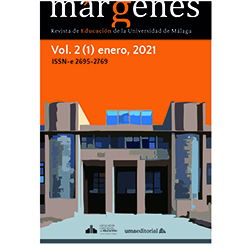Is the university a meeting place?
Main Article Content
Abstract
These lines are a wake-up call, as well as an invitation, to put at the center the need to take care of meeting places -such as the university- in which knowledge and practices that can promote a sustainable life are developed and shared. This relational landscape and shared thought has been disappearing almost imperceptibly, as is often the case with subtle pressures, which are blurring the free meaning of our lives. In this sense, the pandemic is a turning point: either we decide to naturalize social distance and isolation as a way of life supported by various online technologies; or we make a firm commitment to a common world, which requires a singular and shared involvement in which presence is the main form of relationship. Educational spaces are essential to make viable this commitment that is generated in the presence and in the encounter. The way in which we relate to virtual spaces at this time will mark the future of the teaching profession.
Keywords:
Downloads
Metrics
Article Details
References
Arnaus, Remei y Piussi, Anna Maria (Coords.) (2010). La universidad fértil. Mujeres y hombres, una apuesta política. Octaedro
Arnaus, Remei y Piussi, Anna Maria (2009). El sentido libre de ser universitarias. DUODA, 36, 131-156.
Cífalli, Mireille (2012). Creer en la escritura. Michel de Certeau, una poética de lo cotidiano. Cuadernos del CLAEH, 100, 317-339.
Garcés, Marina (2020). Escuela de aprendices. Galaxia Gutenberg.






